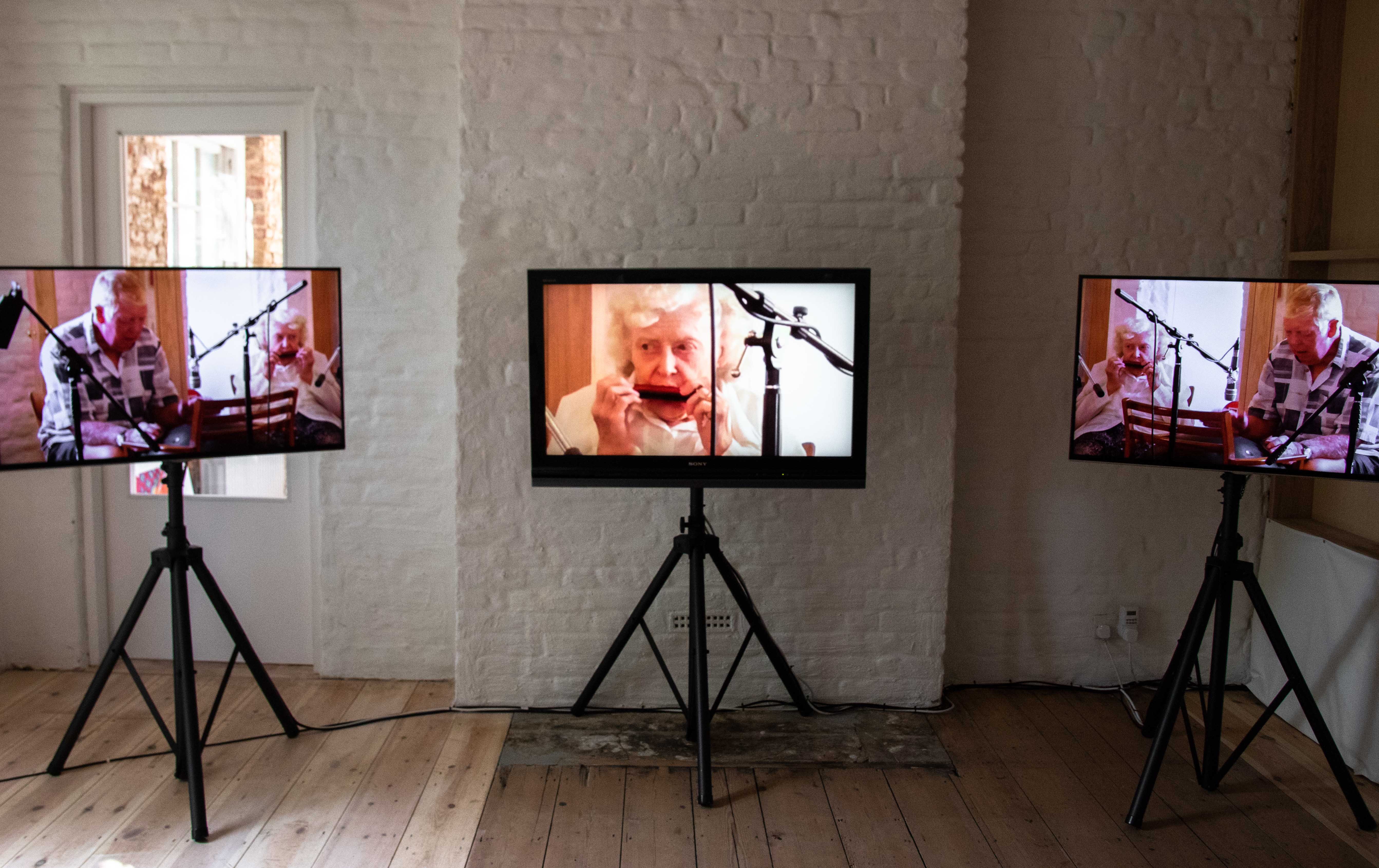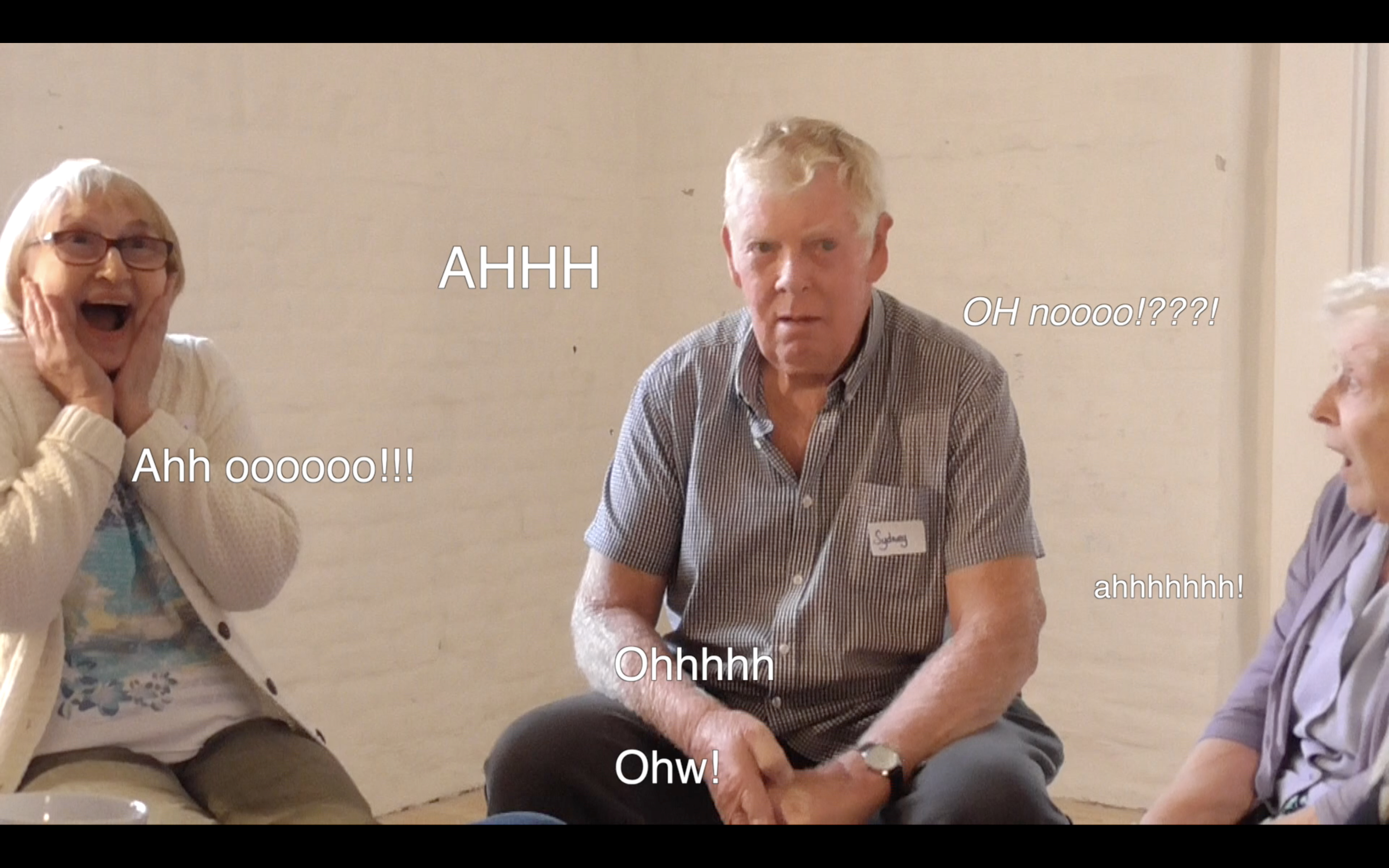WE MAY BELIEVE OR WE MAY NEVER KNOW | 2018
 I
IWe May Believe Or We May Never Know, 3 channel HD video installation view, The White House, Dagenham, 2018 (solo exhibition)
Featuring: Terry Bickell, Vi Charlton, Lorna Orr, Carol Woodham, Evelyn Hazard, Deidre Marculesco.
Original Soundtrack: Devised and recorded by Alice Theobald and Jack Wyllie with contributions from Peter Hawes, Christina Ford, Jimmy Ford, Tracy Wilton, Terry Bickell, Vi Charlton, Carol Woodham, Evelyn Hazard.
Developed on The White House residency, 2017
Developed on The White House residency, 2017
Commissioned by CREATE, London.
With special thanks to Sophie Chapman and Dave Gore.
With special thanks to Sophie Chapman and Dave Gore.
We May Believe Or We May Never Know (single channel screening version), 2018
“We May Believe Or We May Never Know'is a new film by Alice Theobald created as a result of her 4 month residency at The White House in the summer of 2017. During her time at the house, Alice continued her long-term investigation into the spectrum of acting and performance present in our everyday lives. Working with members of the community at the house, her research explored how stereotype, archetype and cliché function in relationship to popular culture, and the demand for “authenticity”. The White House is delighted to present Alice's new film made as a result of her residency for the first time, installed in situ at the house.Devising role-play games, Theobald invited people she met and formed relationships with during her time in Dagenham to take part in recorded improvised music and acting sessions. “Acting like someone behaving like something they are not...” involved group acting exercises based on the way we behave when trying to cover something up. “Act like you’re fourteen now...” asked members of a the house’s poetry group (all aged 50+) to discuss their trials and tribulations as a fictional group of fourteen-year-olds living in the present day. Together through poetry and role-play games they explored imagination as perhaps the most important tool for empathy, and the ways in which we reimagine other people’s stories by creating narratives around their lives.
 We May Believe Or We May Never Know, Film still, 2018
We May Believe Or We May Never Know, Film still, 2018Through these constructed situations, the framework for which creates layers of negation (someone acting as someone acting as…), across age, gender and class roles, Theobald was interested in asking what provides the basis for, and construction of, our empathy. However accurate or inaccurate a portrayal of a fourteen-year- old girl is through a seventy-year-old man’s incarnation, it can reveal more about the actor than the subject. Is it then possible through acting and exploring these layers of removal to find a different insight and set of truisms about how we intuitively empathise and understand one another?
How have overlooked and accepted conventions, representations and an increasing demand for “authentic” display, as depicted through media and popular culture, affected our experience of living truthfully? In what ways can we, the public, re-gain agency over what moves us (both physically and emotionally) and how we feel, behave and subsequently lead our lives by better understanding the tools of mass-communication? How do we judge what constitutes genuine behaviour and why is it important to be discussing this now?
'We May Believe Or We May Never Know' is a poetic exploration of people coming together, and trying to understand that which they do not know. It is also a snapshot of the community that has begun to spend time at The White House and the relationships that have begun to grow there. As the film weaves these components together you are charmed by the humour and candor of adults truly playing together. The exploration of empathy, collaboration, improvising and rotating control played out in the film mirror the The White House as an endeavour in itself. As a place where identities are held, people make themselves vulnerable, try new things and support one another, in a constantly evolving and beautifully unresolved way.”
- Sophie Chapman (curator, The White House Dagenham)